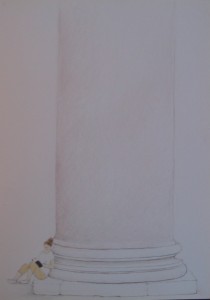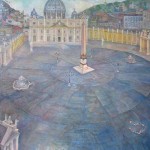
Hate: A Romance is our third international novel on this year’s reading list. So far we have worked our way through David Grossman (To the End of the Land) and Julian Barnes (Flaubert’s Parrot), and now find ourselves wrestling with a young French writer and philosopher named Tristan Garcia. (If you are interested, our next international novel is Fiasco by the Hungarian Irme Kertesz.)
In Hate: A Romance, Garcia develops four characters through whom he weaves the themes of love, sex, violence, hate, and death. The result is an extremely disturbing yet original novel, and readers may find the subject matter hard to take. But, there is also much to learn. After all, we read to explore boundaries beyond what we know, and sometimes it requires us to peer through a darkened window.
Told through the voice of a ‘straight’ journalist named Liz, the story centers on political and personal struggles as AIDS wreaks havoc on an emerging and newly-liberated gay community in Paris. Our main characters, Will and Doume, exploit the AIDS crisis to both carry out individual vendettas and advance political agendas. It is a complicated tale, layered with ideas about commitment, liberation, and activism. Garcia says, “It seemed to me that, as time passed, the memories, the intimate writings of those who had participated in the chronology of gay liberation, the subsequent arrival of the AIDS virus, and the political ruptures that accompanied them step-by-step, weren’t enough anymore–it needed an aspect of fiction.” Hate: A Romance is the fruit of that vision.
The novel’s style is journalistic and a fast read, yet is contains powerful bits of philosophy. In the concluding section, Liz offers reflections on her life and the men with whom she shares this literary stage. One such observation is, “Our origin reveals itself only slowly to be our destiny, and with some weariness, some relief, some fright, we come to understand it. The way we understand it depends on the way we first wanted not to understand it, and to be free.” Her point, which is underscored by the love-hate paradigm that dominates the narrative, is that only through the exploration of opposing tensions can we understand the meaning of our lives.
While the smart women in our group engaged in an intense and significant discussion about this novel, it was a challenge to get to the heart of the matter. So not only was it tough to talk about Hate: A Romance, it is also very hard to blog about! Nonetheless, it is a novel smart women might consider for their reading groups  if you want to read outside of the box.


